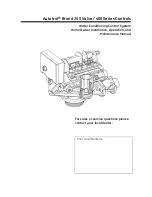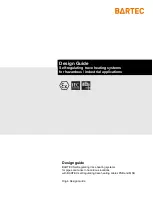
Inhalt:
1. Description
2. Proper use
3. Scope of delivery
4. Attention - oxygen!
5. Starting operation
6. Igniting the torch
7. Adjusting the flame
8. Extinguishing the flame
9. Exchanging the propane cylinder
10. Exchanging the oxygen cylinder
11. Behaviour in case of trouble, and maintenance
12. Transport and storage
13. PERKEO craftsman tips
14. PERKEO safety notes
15. Safety regulations and standards
16. Notes
17. Technical data and spare parts
1. Description
We congratulate you for purchasing a PERKEO brand product. By
purchasing the ECONOMY brazing device, you have acquired a PERKEO
quality product. This device was carefully designed and manufactured.
The Operating Manual shall enable you to use the device properly and
safely. Please observe this Operating Manual as well as the notes on
the propane cylinder in order to avoid accidents but increase the
economic viability and service life of the devices.
2. Proper use
The ECONOMY brazing device is operated with oxygen and propane
and attains flame temperature of 2,800°C! You can therefore do
brazing, heat up, anneal and melt all metals and weld non-ferrous
metals (e.g. brass, copper, lead, etc.) as well! This mobile brazing device
was specially developed for refrigeration, air-conditioning, sanitary
and heating installation craftsmen as well as for roofers/plumbers
and it conforms to the transport guidelines according to DIN EN 962,
and transportation regulations for the protection of shut-off valves.
Made in Germany
Made in Germany
Made in Germany
Made in Germany
Made in Germany
It can be transported in the installation vehicle without time-
consuming conversion; the cylinder pressure reducers must not be
dismantled!
The device is TÜV-certified.
3. Scope of delivery
You obtain the brazing device packaged in a carton. Cut the carton
carefully from the top and remove the device.
These parts must be included in the delivery:
Carrying rack (1) with the propane cylinder (2) and the oxygen
cylinder (3)
Brazing torch (4) with the handle (5)
Orange gas hose (6) with constant propane regulator (8)
Blue oxygen hose (7) with oxygen pressure reducer (9)
Each hose is 3 m long and is equipped with a single-cylinder check valve
with flame arrestor according to DIN EN 730 (10) to ensure user's safety.
4. Attention - oxygen!
Oils and fats of all kinds can ignite explosively in the presence of pure
oxygen. Therefore, the following applies to oxygen: keeping cylinder
valves, pressure reducers, hoses, and the torch free of oil and fat.
However, also oily rags and cloth or oily fingers can be dangerous.
5. Starting operation
Put the brazing device upright in place. The device cannot function
properly in the horizontal state, since liquid propane-gas may
penetrate through the propane regulator into the torch nozzle - and
cause trouble.
Open the Velcro strap loop and remove the hose package.
Remove the handle from the holder on the carrying rack.
Close both valves on the handle (5) by turning it in clockwise
direction. The red-marked hand-wheel regulates the gas supply; the
blue-marked hand-wheel is for oxygen supply.
Open the valve of the oxygen cylinder by rotating it in counter-clock-
wise direction.
The left manometer on the oxygen pressure reducer is the working
manometer. It indicates the pressure inside the oxygen hose and
torch (working pressure). The right manometer is the content
manometer. It indicates the pressure and thus also the content inside
the cylinder.
With the turning knob on the lower side of the oxygen pressure
reducer, you adjust the working pressure. Rotating it in clockwise
sense increases the pressure, rotating it in counter-clockwise sense
reduces the pressure.
Set the working pressure of 2 bar for oxygen.
When you are working in a windy or strong air draught,
REDUCE
the
working pressure of oxygen to 1 bar. The flame will be stable in the
wind and not go off easily. The flame temperature remains the same.
DO NOT INCREASE THE PRESSURE.
Open the valve of the propane cylinder by rotating it in counter-clock-
wise direction.
6. Igniting the torch
Experienced users
ignite the torch by first opening the blue-marked
hand-wheel for oxygen by carefully rotating it in counter-clockwise
direction until a faint hiss is audible. Subsequently, open the
red-marked hand-wheel for gas supply by rotating it a bit in
counter-clockwise direction. Ignite the gas oxygen mixture with the
help of a suitable gas-igniting device on the copper burner nozzle.
Inexperienced users
can first ignite the gas and then open the oxygen
valve. Nonetheless, black soot emerges first.
7. Adjusting the flame
Using the red-marked hand-wheel on the handle piece, you regulate
the size and appearance of the flame. When the flame cannot be
ignited or when it goes off then the amount of gas is too high. In this
case, you have to throttle down the gas valve (red-marked hand-
wheel) on the torch handle by rotating it in the clockwise direction.
The oxygen valve (blue-marked hand-wheel) on the torch handle
must be fully open.
When flame is yellow, it has excessive amount of gas. Throttle the
gas valve carefully (red-marked hand-wheel) on the torch handle by
rotating it in the clockwise direction.
When the flame is narrow and short and appears glassy violet, it has
excess amount of oxygen. Open the gas valve carefully (red-marked
hand-wheel) on the torch handle by rotating it in the in counter-
clockwise direction.
Then adjust a neutral flame. That means that the strong blue-green
glowing flame core must be sharply surrounded by a dark blue flame
edge (secondary flame).
8. Extinguishing the flame
To extinguish the flame, first close the gas valve (red-marked hand-
wheel) and then the oxygen valve (blue-marked hand-wheel) on the
torch handle by rotating it in the clockwise direction.
Close the propane cylinder and the oxygen cylinder valves by rotating
them in clockwise direction. Close the valves even during longer
pauses.
After completing the brazing task: open the gas and oxygen valves on
the handle briefly with the cylinder valves of gas and oxygen on the
handle, and do not allow the rest amount of gas to escape. In this
manner, you relieve the hoses and the pressure reducer.
Wrap the hoses and fasten them with a Velcro strap on the rack. Stick
the torch handle into the holder provided for it on the side of the
carrying rack.
9. Exchanging the propane cylinder
Close the valve of the propane cylinder by rotating in clockwise
direction.
Unscrew the propane constant regulator in clockwise sense (left-
hand thread).
The propane cylinder is fastened with a holder on the carrying rack.
Loosen the holder with a cross-recess screwdriver in counter-
clockwise sense (cross recess size 3).
Replace the empty propane cylinder with a full one, or refill the
propane cylinder with a suitable refill nozzle.
Screw again the holder for the propane cylinder with the cross recess
screwdriver in clockwise sense. Position the propane cylinder such
that the cylinder valve points towards the right.
Screw the propane constant regulator counter-clockwise on the
propane cylinder (left thread).
10.Exchanging the oxygen cylinder
Close the valve of the oxygen cylinder by rotating in clockwise
direction.
(
1
) Carrying rack
(
2
) Propane cylinder
(
3
) Oxygen cylinder
(
4
) Brazing torch
(
5
) Handle
(
6
) Orange gas hose
(
7
) Blue oxygen hose
(
8
) Constant propane regulator
(
9
) Oxygen pressure reducer
(
10
) Single-cylinder check valve
1
10
10
2
3
4
5
6
7
8
9
((Grafik))
blue-green,
strong glowing
blue
short + violet
blue
long + light blue
glowing yellow
blue
Correct adjustment
Excess
amount
of oxygen
Excess
amount
of gas
BA_ECONOMY_10-Seiter_78x155mm_en_050511_PERKEO_BA_ECONOMY_78x155mm 05.05.2011 12:51 Seite 2




























